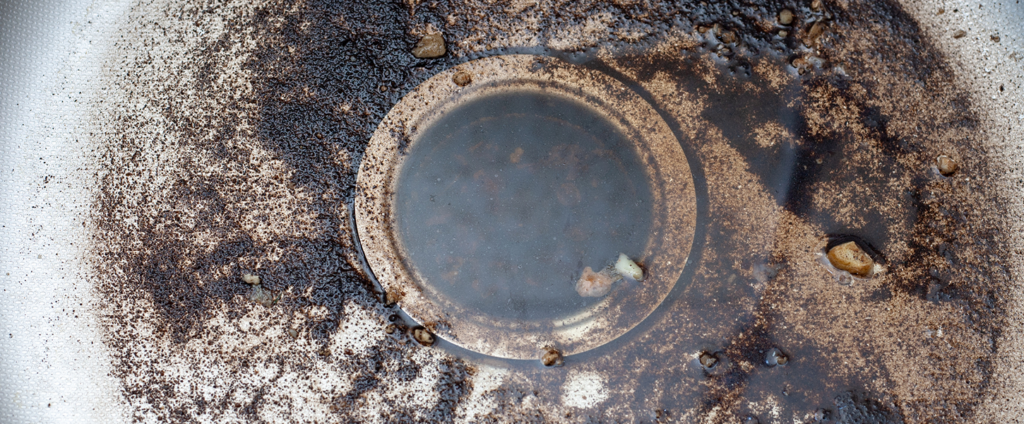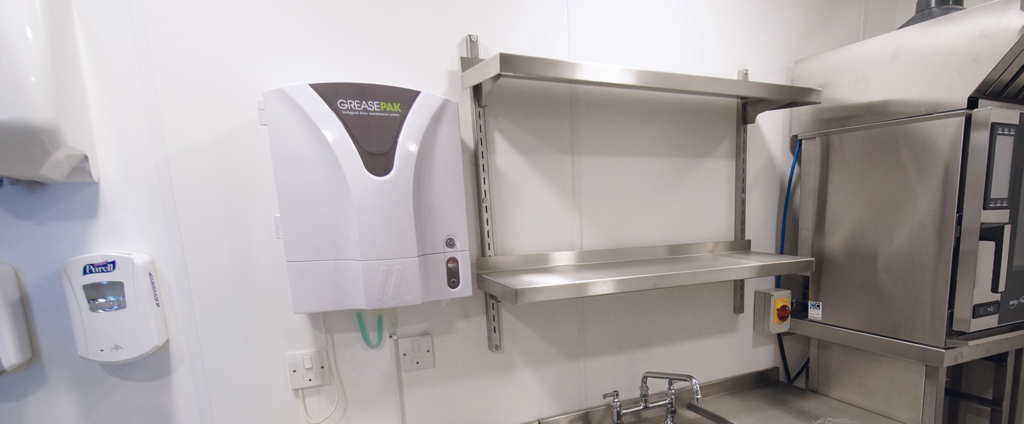
How to Tackle Fat, Oil, Grease and Starch Waste in your Commercial Kitchen
Fats, Oils, Grease and Starches – FOGS. Managing these four culinary bi-products is one of the restaurant industry’s most important, yet least talked-about aspects.
As the owner or manager of a hotel, restaurant, pub or café, FOGS management is your responsibility. You have to decide on the safest, most efficient, cost-effective and legal method of disposal––and reduction. In this article, we’ll look at your options and show you how a quick call to Mechline for specialist FOGS advice can be your first step towards being safe and compliant.
Why FOGS Management Matters

Working with cooking oils, meat, dairy products, dough, even vegetables, all result in the same thing – FOGS. From fish and chip shops to fine dining restaurants, every eaterie produces waste products that, if not carefully managed, can potentially cause damage to public health, infrastructure and your business.
Uncontrolled oil and grease can affect the efficiency of your kitchen and wider sewerage systems. They congeal when cool, which contributes to blockages. In the sewerage system, this can cause sewers to overflow, negatively impacting the wildlife in ponds, streams and rivers. Equally, polluted water poses a serious health and safety risk to people, attracting both insects and vermin.
There are financial consequences too. The costs of blockages and repairing the local sewerage system are steep for both the water companies and the communities they serve. Not to mention the costs to your own business, if you have to experience operational downtime, or worse pay a hefty fine!
The negative consequences of poor FOGS Management
FOGS can enter a commercial kitchen’s plumbing system from any number of sources – cooking equipment, dishwashing areas, floor cleaning and equipment sanitation. As the owner or manager of the facility, you have a moral and legal duty to make sure your restaurant doesn’t impact the local sewerage system. Fail to carry out your responsibilities, and you could end up paying a heavy price – in terms of
- a financial penalty, including, on occasions, having to pay for repairs to the local sewer network
- disruption to your business while you install corrective measures
- serious damage to your reputation

FOGS management, what are my legal responsibilities?
Section 111 of the Water Industry Act 1991 says:
‘no person shall throw, empty or turn, or suffer or permit to be thrown or emptied or to pass, into any public sewer, or into any drain or sewer communicating with a public sewer any matter likely to injure the sewer or drain, to interfere with the free flow of its contents…’
When unsuitable substances find their way into the sewers, damage to the environment and to homes and businesses become a real threat. While there aren’t laws that directly pertain to the installation of FOGS management systems, your local water authority can fine your business if it’s identified as the source of a blockage or drainage related issue. You need to prevent FOGS from entering drains and the sewer.
The legislation that exists is there to protect your employees, patrons, neighbours and the environment. Specialists can assess your site to see how the design or layout of your commercial kitchen, the equipment, staff training and work procedures
affect the amount of FOGS your establishment produces. They’ll also check whether the system you have in place is effective in managing and minimising FOGS.
For more details about the specific legislation that affects businesses around the UK and Ireland, we have some dedicated resources you can refer to here.
What Causes Blocked Drains in Restaurants?

Food waste blockages
Food waste rarely flows through the system as easily as many would like to believe. Leftover food can lodge in any U-bend, causing rapid blockage build-up. Dirty water then backs up and, before you know it, you soon have a food hygiene disaster on your hands.
Poorly maintained equipment
Over-reliance on one type of equipment can be problematic if it is not correctly specified. It’s a common misconception that simply having equipment in place, such as a grease trap, will solve any FOGS issue. Not so. The chosen equipment needs to be appropriate for the operation – determined by a site assessment – and properly maintained. Infrequent maintenance can render equipment highly ineffective. For example, problems may arise when grease traps aren’t regularly emptied, or bio-dosing fluid is not kept topped up.
Building related drainage issues
Effective drainage starts as early as the original building process. Drainage systems need to be properly planned, fitted and maintained at every stage.
If you inherit a kitchen, you may be able to work with what you have. However, if you’re converting a warehouse or shop, you may have plenty of work to do – some of it structural – before you have a drainage system that’s fit for purpose.
Is your new kitchen in a multi-story building? Think about how you will access the drainage and how neighbours might be affected. Historic buildings may have limitations in terms of what alterations are possible, so be sure to check that the existing drainage setup is adequate for a commercial restaurant business and what additional installations may be required to help you manage your FOGS efficiently.
Read this blog for more information on common issues that can affect your drains
Your FOGS Management Options

When tackling the issue of FOGS, you will need a holistic view. Effective management requires a combination of optimised processes and best practice implementation, along with the installation of a FOGS management system that will allow your restaurant to function safely, hygienically, and with minimal disruption.
The Grease Contractors Association (GCA) recommends staff training should take place with the installation of any grease management equipment. It’s true that the best approach is usually a multi-layered one. This starts with a proper site evaluation, which will identify the most suitable solution for your kitchen. Then, best practice training, on how to prevent FOGS getting into the wastewater, and how to operate and clean any equipment. Finally, effective maintenance plans to keep your system functioning effectively. After proper consultation and analysis, you’ll be in a position to install a highly efficient FOGS management system.
Start with Prevention

Food scraps – in the bin!
Solids from leftover food, especially when combined with oil or grease, can cause serious blockages over time. Your job is to stop them from entering the drains in the first place. The good news is that this form of waste is the easiest to manage. You need to train your staff to dispose of all food scraps into dedicated bins. They should be carefully scraping all food deposits from plates, pans, serving dishes and utensils – before they are washed. Everything should be wiped with a paper towel, too, before running them under the tap.
Anything else you can do regarding reducing food waste will make FOGS management easier and less costly, as well as helping the planet.
Use a sink waste strainer
The simplest solutions are often the best. The most straightforward way to stop food waste from entering your drainage system is by using a Mechline Sink Waste Strainer. Our unique sink waste strainer system makes it easy for kitchen staff to prevent food waste particles from entering the drainage system via the sink drain boss. These are available in numerous sizes to fit different size sink bowls.
Staff training for FOGS management
There’s no substitute for carefully programmed staff training. After all, food and FOGS waste is a human problem, caused, and controlled by human behaviour. With effective staff training, both as part of your onboarding process and as an ongoing programme of training, almost all your food waste management issues can be covered.
Your staff need to understand the following:
- The dangers of waste blockages
- The cause of commercial kitchen-related drain blockages
- How to avoid FOGS problems in the first place
- The rationale behind your FOGS management strategy
- The vital role that they have to play in the execution of your strategy, specifically the importance of consistency and diligence in cleaning and maintaining the equipment.
Download our handy stop-and-think poster. This visual guide graphically shows how best to dispose of food and FOGS waste.
Choose the Right Equipment

Grease traps
Restaurants have relied on grease traps for many years. In fact, they were first used back in the Victorian era. They work on the principle that oil and water don’t mix. The oil rises to the top of the grease trap, allowing wastewater to flow out beneath. Then, all that’s needed is for someone to arrange for the grease to be emptied and collected by a licensed waste collector. The trouble with grease traps, like all grease management solutions, is that they are vulnerable if not maintained correctly. If staff fail to arrange regular cleaning and emptying, blockages will inevitably result.
Grease removal units (GRUs)
Some restaurants will install grease removal units (GRUs). Again, these can work well, but require proper maintenance and emptying to work effectively. Just as with grease traps, GRUs allow fats, oils and grease (FOG) to float to the top. These FOGS are then skimmed/removed from the tank and put into a separate container, which can be easily accessed for emptying. GRU tanks are often smaller than traditional grease traps as they are emptied to daily. This FOG waste does, however, still need to be stored somewhere, securely, until collection.
Bio-dosing
Bioremediation is the process of using bio- fluid containing naturally occurring bacteria to organically degrade FOGS (including starches) before they enter the drain system (not to be confused with enzyme dosing). This bacterial solution can be used as a standalone system, as part of a combined system, or as supportive, complementary technology to your existing grease trap. Bio- dosing units, such as Mechline’s GreasePak, will work to deliver a daily dose of biofluid into the drain to degrade the FOGS and prevent build up in the pipework, and/or grease trap.
This low maintenance, hygienic process is also eco-friendly (depending on the solution used, of course – be sure to check with your supplier) and can be used as a compact standalone solution in locations where the installation of a bulky grease trap or GRU system is not possible. If you already have a grease trap in place, the bio-dosing solution will simply work to optimise your efforts and prolong the service intervals of the trap.
The Benefits of a Mechline FOGS Site Assessment

Mechline is perfectly equipped to advise you on all elements of FOGS management.
A site evaluation will involve an inspection and analysis of your current strategy. This will be followed by constructive suggestions about the best FOGS management approach for your business. Your assessment will also consider kitchen design, menu, equipment used, staff training, and working procedures – everything you need to help you run your business smoothly and safely.
For businesses of all shapes and sizes, best practice usually involves taking a layered approach – installing a combination of technologies and processes to maximise the removal and treatment of FOGS that would otherwise enter the drains and sewerage system.
Whatever you decide, you’ll want a solution that’s easy to maintain, hygienic, and odour-free – as well as cost-effective and efficient. Anything that’s difficult to maintain, is less likely to be maintained, which will cause big issues in your kitchen. This will result in operation downtime and divert your staff’s attention from doing what they do best – cooking and serving food, glorious food.
Regardless of the type of establishment you run or the kind of cuisine you serve, FOGS disposal won’t go away. It’s a perennial, universal issue for the catering sector – an issue that needs to be taken seriously for the health of your customers, your staff, your business and the wider world.
It’s Time to Make That Call

No matter what your setup looks like, we’ve got the products to help you. Book a call with a FOGS management expert today.
During the call, you’ll discover how we can help you to:
- Implement effective FOGS management systems
- Choose sustainable and cost-effective solutions
- Access our end-to-end service
- And ultimately… find peace of mind!
